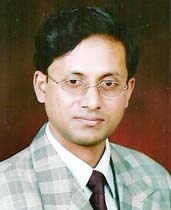
Dr Mohammad Didare Alam Muhsin :
Eventually the fears began to prove true. When Sheikh Rezaul Karim, the Registrar of Sher-e-Bangla Agricultural University, was given the routine charge of Vice-Chancellor last September, many were regarding it as a forerunner of appointing bureaucrats in deputation to various key posts in public universities in future. Thus, the incident caused intense anger among the teachers and students at the universities. However, it seems that the policy makers did not take this protest at the universities seriously, as it comes evident from the appointment of Mohammad Abdul Mannan, Additional Secretary (PRL), Department of Implementation Monitoring and Evaluation, Ministry of Planning, as the Treasurer of Bangamata Sheikh Fojilatunnesa Mujib Science & Technology University, Jamalpur on May 6.
Naturally, the teachers’ community in the universities could not take the matter easily. The Federation of Bangladesh University Teachers’ Association, and also teachers’ associations of different universities, have already protested the appointment. Teachers are also posting status individually in social media to express their dissatisfaction. The question is if it is just an isolated incident or the whims of some people in a responsible position, or a hint of a paradigm shift at the policy-making level. Is it just a question of dignity of the teaching community of universities, or a decision that conflicts with the aims and objectives of universities and can have a negative impact on their overall performance in the short and long term? To what extent is such a policy consistent with Bangabandhu’s thoughts and policy on higher education?
To manage the multidimensional functions of universities, a group of people have to perform administrative duties at different levels. These include Heads of the departments at the department level, Deans at the faculty level and above all the Vice-Chancellor and one or more Pro-Vice-Chancellors. A Treasurer is appointed to assist the Vice-Chancellor in financial matters. The hostels are administered by Hall Provosts. In addition, several bodies, including the Syndicate, the Senate, and the Academic Council, play their respective parts in coordinating the overall activities. The whole thing is led by the teacher’s community, but a team of officers and employees provide them official and clerical support. The Registrar of the University is responsible for the overall coordination of these supports.
That is why there has been a practice for long time in the country of appointing high-ranking civil servants in deputation to top positions in various semi-government / autonomous organizations. There is good reason to believe that they make significant contributions to the management of these organizations using the skills and experiences they have acquired over a long period of time. The question is: to what extent can their skills and experiences be useful in running an institution like a university? It has become extremely important at this critical juncture to find the answer to this question dispassionately. There is no room for whimsy or experimentation. The country’s higher education institutions are already plagued with hundreds of problems. There is a need to think calmly whether bringing in people who are not university professors in the overall management of the universities will bring any benefit at all, or will add further to ongoing crises in country’s higher education system leading to chaos and worsening of the situation.
When a teacher goes through various stages after joining a university as a lecturer to ultimately become a professor, s/he gets acquainted with all the different aspects and issues of the higher education institution, involving teaching, research, student affairs, and student-teacher relationship. The overall insight that s/he develops over the course of this long journey about the totality of the university and its issues, can never be achieved without going directly through this process.
Thus, the skills and experiences gained by a high-ranking civil servant in the course of his long career are certainly invaluable assets for the country and the nation. However, it does not matter when it comes to running a university — not only for the positions like Vice-Chancellor or Pro-Vice Chancellor, but not even for the position of Treasurer. Because how can someone, who is not acquainted with the ins and outs of an university and its various issues, judge allocations required in its different sectors? It is not just a matter of book-keeping or reconciliation.
Considering the immense importance of education in the development of the country and the nation, Bangabandhu on the one hand nationalized primary education and on the other hand gave autonomy to the universities so that free thinking and scholarship could be practiced in higher education. There may be questions on the point that to what extent we have used or abused this gift endowed by him, but if we want higher education to play a proper role for the sake of the country and the nation, then that is the only and right path. All bolts must be untied. Open windows are indispensable for creating a world-class atmosphere, conducive to the concept of university, for teaching and research. This is a very sensitive issue, which involves the fate of the whole nation. It is not a matter of adventurism.
(Dr Muhsin is Professor of Pharmacy, Jahangirnagar University).

